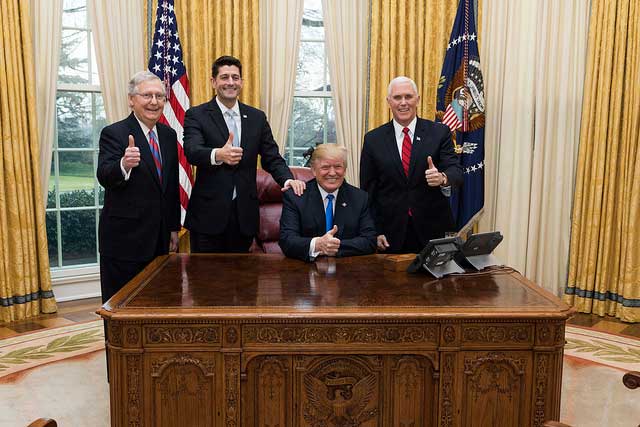1/3/18 trump and the Palestinians
Most Israelis had already gone to sleep on the night of January 2nd — the first workday of the New Year in the US— when President Donald J. Trump issued his 15th and 16th tweets of the day. Earlier in the night (Israel time), American UN Ambassador Nicki Haley threatened to cut off US funding to UNRWA, because of Palestinian refusal to resume any peace talks with the Trump administration, after the President officially recognized Jerusalem as the capital of the State of Israel. Disagreements had already broken out among Israelis regarding whether this was a good or bad shift in American policy.
Then, the President tweeted:
“It’s not only Pakistan that we pay billions of dollars to for nothing, but also many other countries, and others. As an example, we pay the Palestinians HUNDRED OF MILLIONS OF DOLLARS a year and get no appreciation or respect. They don’t even want to negotiate a long overdue…”
“… peace treaty with Israel. We have taken Jerusalem, the toughest part of the negotiation, off the table, but Israel, for that, would have had to pay more. But with the Palestinians no longer willing to talk peace, why should we make any of these massive future payments to them?”
The President’s tweets — if you consider them expressions of American policy — were breaking news in three areas. First, and probably most important, Trump stated: “We have taken Jerusalem, the toughest part of the negotiation, off the table,” a declaration that completely contradicts the briefing given the night preceding Trump’s Jerusalem announcement by White House briefers, who communicated in no uncertain terms, that the President’s announcement on Jerusalem had no impact on final status negotiations. Instead, in the tweets cited here above, Trump endorsed the Palestinian position insisting that the US President had prejudged the final peace talks on a matter of profound importance to them.
The second piece of news implied in Trump’s recent tweets was his statement that Israel would have to pay for his decision to recognize Jerusalem as its capital. At this point in time, no one seems to know what that is supposed to mean.
The third news item Trump imparted in this pair of tweets was the matter that received the most coverage here in Israel — i.e. his implicit support for the threat leveled by Ambassador Haley to cut off funding to UNRWA, if the Palestinians do not return to the negotiating table. There has been widespread support for that position in Israel. Yair Lapid, leader of the Yesh Atid party, who, based on the most recent polls, has a reasonable chance of being the next Prime Minister of Israel stated:
“The President of the United States is right — beyond the indirect support for terror that UNRWA has given, it is also responsible for the fact that 750,000 refugees from Israel in 1948 (most of whom have died by now) became 5.5 million fake ‘refugees’ who were never exiled from anywhere.”
Lapid continued:
“UNRWA has long ago lost is reason to exist.”
Arsen Ostrovsky, a right-leaning Tel Avivan who is an international lawyer and Middle East policy analyst stated:
“At end of the day, President Trump is accountable to the American tax payer and needs to show return on investment. The United States cannot continue to write blank checks to the Palestinians and the United Nations, especially when that money is not being used to advance peace, but rather to underwrite salaries to convicted Palestinian terrorists and attack US interests within the UN. President Trump is correct here to say, ‘enough is enough.’”
In contrast, while agreeing in principle with both Lapid and Ostrovsky’s positions as to why UNRWA (initially set up in 1949 to handle Palestinian refugees, under a separate directive from the regular UN Commission on Refugees — whose mandate included refugee resettlement, something the Arabs have continually opposed, and making them the only refugee body in the world for whom refugee status is inherited through generations) needs to be held accountable, former Israeli Army spokesman LTC Peter Lerner argued:
“I am all for accountability, but severing the aid will primarily hurt the weakest, undermine security and not guarantee any return to the negotiating table. It just seems like a gut reaction, not a strategy.”
Lerner’s comments encapsulate the great success and great danger of President Donald Trump. Much of what he says (especially when it comes to foreign policy) often sounds correct, certainly on a gut level — Why continue funding people who won’t talk to you? or his tweet about Pakistan earlier in the day, which is certainly correct — the Pakistani government has undoubtedly not done enough to stop terror. However, unlike every President who has served before him, who carefully weighed the consequences of every statement and gesture, (and generally had contingency plans to deal with a potential arrays of reactions), in President Trump this seems totally absent.
What is next? Trump’s statement on Jerusalem was factually correct — Jerusalem is the capital of Israel. But how will having made that proclamation bring us closer to peace? Trump is right, funding the Palestinians when they teach their children to hate and pay salaries to the families of terrorist makes no sense.
UNRWA should be replaced, but what next? What happens if the schools in Gaza close and those receiving substantial money from UNRWA stop receiving funds and the already fragile health system collapses? Does this President have a plan to address any of that? Does Trump have a plan on how to resume Israeli-Palestinian negotiations? How does he plan on influencing Pakistan if he withdraws American aid?
The list of open foreign policy questions is long. The world is complex and multi-dimensional. Can we survive a leader who sees only black and white and who appears to only consider the present? We survived the first year …
 >
>